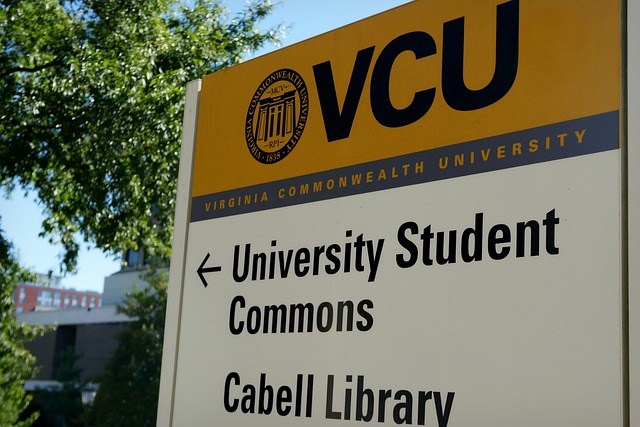Students seeking affordable off-campus housing should start by assessing their needs and budget. Research rental listings, tenant reviews, and contract terms to find suitable accommodations. Utilizing a comprehensive student housing guide ensures understanding of lease durations, utility costs, amenities, and local regulations. A proactive approach, including reading contracts thoroughly and knowing tenancy rights, leads to a successful college apartment search that creates a comfortable living environment.
Evaluating off-campus housing contracts is crucial for students seeking affordable and suitable accommodations. This comprehensive guide provides essential tips to navigate the process effectively. From understanding your needs and budget for affordable student housing to researching rental contracts, this article covers key components of a student accommodation guide. It offers strategies for a successful college apartment search and protects your interests when renting as a student. Discover how to avoid common pitfalls and make an informed decision with these essential student housing tips.
- Understanding Your Needs and Budget for Affordable Student Housing
- Researching and Evaluating Off-Campus Rental Contracts
- Key Components to Look For in a Student Accommodation Guide
- Strategies for a Successful College Apartment Search
- Protecting Yourself: Essential Tips for Renting as a Student
Understanding Your Needs and Budget for Affordable Student Housing

Before diving into the world of off-campus rentals, it’s crucial to understand your needs and budget for affordable student housing. This student housing tip is a fundamental step in your college apartment search. Consider factors like proximity to campus, commute times, and whether you prefer shared or private spaces. Knowing what amenities are essential—such as high-speed internet or on-site laundry facilities—will help guide your decision. Budgeting is another key aspect; compare rental prices across different neighborhoods and consider the added costs of utilities and furniture.
The student accommodation guide should also take into account any financial aid or scholarships you may have, which could significantly impact your ability to afford a particular property. By clearly defining your requirements and financial capabilities, you’ll be better equipped to find suitable and affordable off-campus housing that aligns with your needs during your college years.
Researching and Evaluating Off-Campus Rental Contracts

When researching and evaluating off-campus rental contracts, students should approach the process with a critical eye. Start by comparing different properties to get an understanding of market rates for affordable student housing in your area. Look into tenant reviews and check if the accommodation meets basic standards such as safety, maintenance, and accessibility. Online resources like student accommodation guides can provide valuable insights into common clauses and conditions in off-campus rentals.
Additionally, carefully review the terms and conditions outlined in each contract. Pay close attention to details about rent payment schedules, security deposits, cleaning responsibilities, and any additional fees. Ensure that the contract aligns with your expectations and budget for renting as a student. It’s also beneficial to have a basic understanding of local tenant rights and landlord obligations to make informed decisions during your college apartment search.
Key Components to Look For in a Student Accommodation Guide

When searching for affordable student housing and considering off-campus rentals, having a comprehensive student housing tips guide is essential. A thorough student accommodation guide should outline key components that directly impact your living experience. Firstly, look for details about rental terms, including lease durations and renewal policies. Understanding these will help you plan your stay and budget accordingly. Additionally, check if utilities are included in the rent or considered separately, as this significantly affects monthly expenses.
The college apartment search should also highlight important amenities and facilities. This includes the quality and condition of accommodation, access to high-speed internet, laundry facilities on-site or nearby, and common areas for social interaction. A good renting for students guide will further emphasize the importance of a safe neighborhood with easy access to campus, transport links, and local amenities like grocery stores and cafes.
Strategies for a Successful College Apartment Search

Finding the perfect off-campus rental can be a challenging yet rewarding experience for students. Here are some effective strategies to make your college apartment search smoother and more successful. Firstly, define your budget and prioritize affordable student housing options. Many cities offer a variety of rental choices tailored to different financial needs, so being clear about what you can afford will save time and stress. Utilize online resources like student accommodation guides and real estate websites dedicated to off-campus rentals. These platforms provide an extensive database of available properties, allowing you to filter your search based on location, price, amenities, and even walkability to campus.
Additionally, consider joining local student groups or forums where peers share their experiences and insights on renting for students. Word-of-mouth recommendations can be invaluable in finding hidden gems or avoiding potential pitfalls. Remember that a successful college apartment search is not just about finding four walls and a roof; it’s about creating a comfortable home away from home, fostering a sense of community, and setting the tone for your overall university experience.
Protecting Yourself: Essential Tips for Renting as a Student

When considering off-campus rentals, students often face a myriad of options, from private apartments to shared spaces. Protecting yourself during this process is paramount to ensure a safe and affordable student housing experience. Firstly, review the lease agreement thoroughly; understand the terms regarding rent payments, maintenance responsibilities, and any restrictions on subletting or having guests.
Check for clear communication about utilities included in the rent, as well as who is responsible for major repairs. Additionally, familiarize yourself with local tenancy laws to know your rights and how to handle potential issues. Negotiating certain terms, such as a longer lease period or clarifications on noise policies, can also create a more comfortable living environment.






